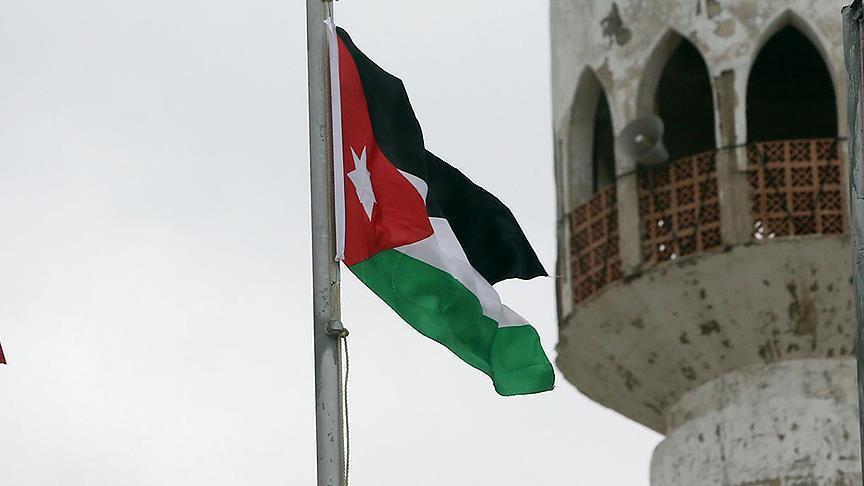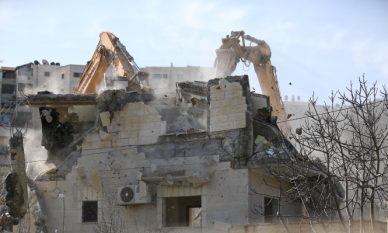On 25 July 1994 the State of Israel and the Hashemite Kingdom of Jordan after a spell of negotiations signed the Washington Declaration in which they committed to signing a full peace treaty ending the state of war between them in place since Israel was created in 1948. The treaty of peace between the State of Israel and the Hashemite Kingdom of Jordan otherwise known as Wadi Araba Treaty signed on 26 October 1994 established diplomatic relations between Amman and Tel Aviv. The 75 page document opened the way for cooperation in security tourism economics water resources and more.
Clause 2 of Article 9 of the treaty concerns Jerusalem but only in the context of providing “freedom of access to places of religious and historical significance” particularly obliging Israel to “respect” the “special role of the Hashemite Kingdom of Jordan in Muslim Holy shrines in Jerusalem”. This was signed months after Israel and the PLO signed the Oslo Accords which promised that some kind of a Palestinian state would be created. Jordan and Israel could not ignore that development hence the Wadi Araba document’s reference to the final status negotiation between Israel and the Palestinians. But the Treaty does say that “Israel will give high priority to the Jordanian historic role in these shrines.”
Amazingly enough neither the Treaty itself nor the preceding Washington Declaration say anything about the fact that under international law East Jerusalem is recognized as occupied land which means among other things Israel as the occupying power is obliged to respect its topography and geography as well &ndash far more than “respecting” Jordan’s special role in Muslim Holy shrines. In practice and in accordance with international law Israel should not build or demolish any structures which existed before its occupation. It also should not confiscate any land in the territories it occupies by force.
That is not what is happening in reality which means Israel continues to violate the terms of the Treaty and Jordan can only complain about such violations while watching helplessly.
While the Treaty in theory is based on the two relevant United Nations resolutions namely resolution 242 and 338 both resolutions however do not mention the word “Jerusalem” let alone “Palestine”. This is like the Treaty is actually giving Israel the right to cherry-pick what it likes from the UN and what it does not from international law and ignore everything else.
The same interpretation can be said about the key word “respect” used in the Treaty to highlight Israel’s obligations towards Jordan’s relationship with the Muslim holy places in Jerusalem including and beyond Al-Aqsa compound itself. Since the word “respect” is very general and sometimes vague in meaning Israel is free to interpret it in any way it likes and still claim that it is upholding the Wadi Araba Treaty when it is not.
On top of all that the Treaty does not mention Al-Aqsa Mosque by name or any other holy site instead using the word “shrines” to describe all Holy Muslim sites in the area. It also does not refer to the Islamic Waqf or Endowment also known as Jerusalem Waqf which is supposedly under Amman’s control and management. The Waqf is looking after the Al-Aqsa Mosque under the Jordanian authorities.
In fact describing Al-Aqsa as a “shrine” among others is not only an understatement it also downplays its significance under this description because it fails to convey its importance to the entire Muslim world of approximately 2 billion people. The word “shrine(s)” also does not emphasize the centrality of the Muslim Holy sites in Jerusalem to the Hashemite dynasty itself in whose name Jordan as a State was founded.
In fact part of the Hashemite dynasty’s legitimacy is directly linked to the Holy City particularly the Al-Aqsa Mosque which before the Israeli occupation in the 1967 was under Jordanian control and directly managed from Amman. Without Jerusalem that legitimacy is injured to say the least.
The recent Israeli policies towards the Holy sites in Palestine beg the question to be asked: what really remains of the Wadi Araba Treaty after 29 years in terms of “respect” for Muslim Holy sites? More specifically does Israel really “respect” such places fulfilling its commitments made to Jordan?
In the simplest interpretation such respect would for example mean Jewish settlers are not allowed at all times and under all circumstances from entering the Al-Aqsa Mosque let alone the entire compound. Is this the case? Not really.
Since the current Israeli government came to power the storming of the Al-Aqsa Mosque and restricting access to it for the worshippers has become a standard policy. It is no longer “rogue” extremist settlers who attempt to desecrate the place but they do so under the protection of the Israeli Occupation Forces and in many cases led by racist officials like Itamar Ben-Gvir who is Israel’s Internal Security Minister and examples of this are more than can be counted.
Between 2014 and April last year Israel raided closed restricted access to Al-Aqsa nearly 100 times. All of these actions are in violation of the Treaty with Jordan. Between last December when the Netanyahu formed his current coalition government and last July his Internal Security Minister the notorious Ben-Gvir has led extremists in storming the compound at least three times and counting. At all times they have been escorted by Israeli police to protect them despite the fact that they are acting illegally.
During the blessed month of Ramadan this year last April the Israeli forces stormed Al-Aqsa several times without any respect for the sanctity of the month or that of the place.
We should remember that every time Israel takes such actions against the Al-Aqsa compound many Palestinians fall victim to violence as a consequence and many more end up in jail.
On 17 January this year Jordan’s Ambassador Ghassan Majali was prevented by Israeli police from entering Al-Aqsa. Five days earlier Lord Tariq Ahmed a United Kingdom Minister was stopped by Israeli police when he went to visit Al-Aqsa despite being on an official visit.
Indeed the Wadi Araba Treaty was about “peace” between Jordan and Israel but it is also about the Muslim Holy sites in the Holy City which is a matter of concern to all Muslims around the world.
Every time Israel violates its obligations under the Treaty all Jordan can do is to complain while watching helplessly. On rare occasions Jordan has for example summoned the Israeli Ambassador to make its diplomatic protests more forceful. It is also rare that any Jordanian complaint includes reference to the fact that disrespecting the Holy Sites is a blatant violation of the entire peace Treaty. Maybe Jordan should work on either updating the terms of the Wadi Araba Treaty to force Israel to really “respect” the Holy sites or renounce its custodianship over them since they are under occupation anyway.
Otherwise the idea of Jordanian custodianship of the Holy sites has become an empty slogan just as the idea of the two-state solution. Israel will never stop violating the terms of the peace Treaty concerning the Muslim Holy sites despite Jordan’s complaints unless it is made to pay for such actions.
– Mustafa Fetouri is a Libyan academic and freelance journalist. He is a recipient of the EU’s Freedom of the Press prize. His article appeared in MEMO.














